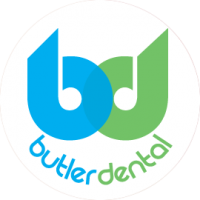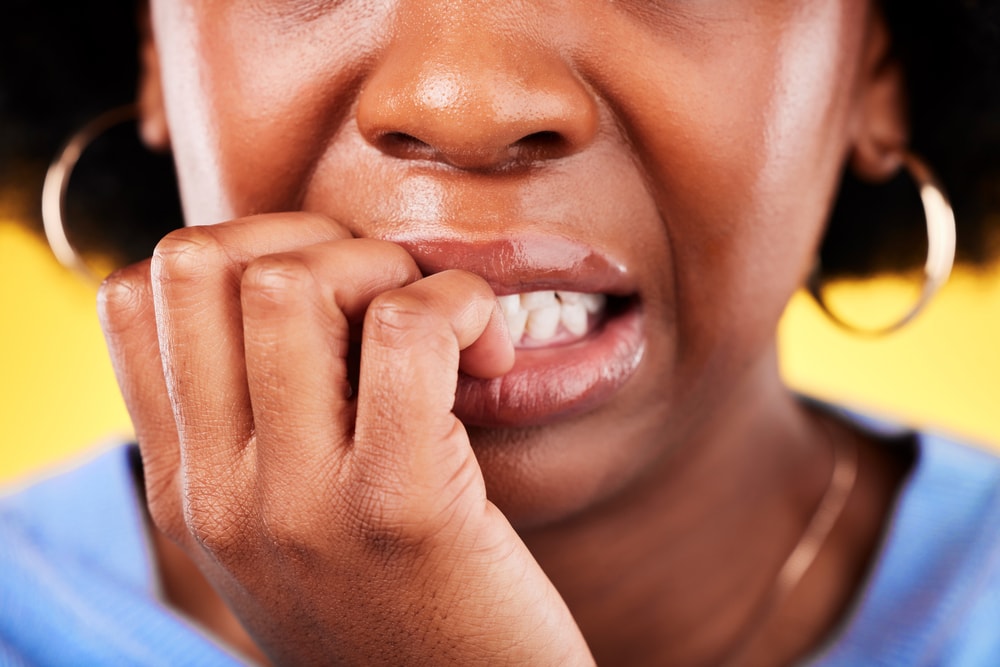Biting your nails, a common habit for many, can significantly impact your dental health. While nail-biting may seem like a harmless habit done for stress relief or out of boredom, it can lead to serious consequences for your oral hygiene.
One of the main concerns related to nail biting is the potential for enamel damage. Enamel is the hard outer layer of your teeth, protecting them from decay and damage. When you frequently bite your nails, you expose your teeth to excess pressure and friction, which can wear down the enamel over time. This can increase the risk of tooth sensitivity, cavities, and other dental issues.
In addition to enamel damage, nail biting can introduce harmful bacteria from your nails into your mouth, potentially leading to infections and other oral health risks. Maintaining good oral hygiene practices is essential to prevent these consequences. Therefore, kicking the nail-biting habit isn’t only beneficial for your nails but crucial for preserving your dental health in the long run.
What is Nail Biting?
Nail-biting, also known as onychophagia, is a common compulsive behaviour that often stems from underlying psychological triggers such as anxiety or stress. It’s a nervous habit that affects many individuals and manifests differently across various contexts. Some people bite their nails when anxious or worried, while others do it unconsciously to respond to stress.
Nail-biting can become a coping mechanism for managing overwhelming emotions, providing a temporary sense of relief or distraction from underlying issues. This compulsive behaviour can be challenging to control, as it may be deeply ingrained in one’s routine or habits. Understanding the psychological triggers behind nail biting is crucial in addressing the root causes of this behaviour.
Dental Problems Caused by Nail-Biting
It’s important to recognise the direct consequences on your teeth and gums. Nail-biting can result in various dental problems that can significantly affect oral health. One of the primary issues caused by nail biting is enamel erosion. The constant contact between your teeth and nails can wear down the protective enamel layer, making your teeth more vulnerable to decay and sensitivity.
Moreover, gum disease is another common dental problem associated with nail biting. The habit can introduce harmful bacteria from your nails to your mouth, leading to inflammation, infections, and potential gum recession.
Additionally, nail biting can contribute to dental misalignment. The pressure exerted on teeth and jaws while biting nails can disrupt the natural alignment of teeth over time, resulting in bite issues and potential jaw pain.
Comparative Analysis with Other Oral Habits
Other detrimental oral habits, such as teeth grinding and cheek biting, pose similar risks to dental health as nail-biting. While nail biting can lead to issues like chipped teeth and jaw problems, teeth grinding, also known as bruxism, can cause excessive wear, jaw pain, and headaches. Similarly, cheek biting can result in mucosal laceration and potential malocclusion.
When comparing these harmful oral habits, it becomes evident that they all potentially impact dental health negatively. Nail biting, teeth grinding, and cheek biting can all lead to dental problems if left unaddressed. Recognising the similarities and risks associated with these habits is essential to understand the importance of addressing them promptly.
Prevention and Treatment
Focus on strategies like behavioural therapy and dental consultations to address the detrimental effects of nail biting on dental health and explore effective preventive measures and treatments. Nail-biting can lead to various dental issues, such as chipped teeth, enamel wear, and jaw problems. Prevention starts with awareness and a commitment to breaking the habit. Behavioural therapy, including habit reversal training, can effectively address the root causes of nail biting. Consulting with a dental professional is crucial to assess any damage already done and to receive tailored treatment options.
When seeking treatment, a dentist may recommend protective gear like a mouthguard to prevent further damage from nail biting. In some cases, orthodontic treatment may be necessary to correct misalignments or bite issues caused by long-term nail-biting habits. Remember, breaking the habit of nail-biting not only benefits your dental health but also your overall well-being. Stay proactive in addressing this habit to maintain a healthy smile and avoid future dental complications.
Expert Opinions
Seek insights from dental professionals, orthodontists, and psychologists regarding the impact of nail-biting on dental health.
Dental experts emphasise that nail biting can have detrimental effects on oral health. This habit can lead to chipped teeth, increased wear on enamel, and even jaw dysfunction.
Orthodontists further explain that nail biting can interfere with orthodontic treatments, causing delays or complications in teeth realignment.
Psychologists add that nail biting may stem from underlying psychological issues like stress or anxiety, which can exacerbate the harmful effects on dental health.
Seeking professional advice is crucial to addressing both the physical and psychological aspects of this habit. Dental examinations can reveal the extent of damage caused by nail biting, while psychological assessments can help develop coping mechanisms to break the habit.
Key Takeaways
Your oral health is a crucial part of your overall well-being. You can protect your teeth and gums from potential harm by prioritising your oral hygiene and seeking support for behaviour modification to break the nail-biting habit. Don’t wait until dental issues arise—start implementing a consistent dental care routine and reaching out for assistance today.
Contact Butler Dental in Butler, WA 6030, for expert guidance and care. Your smile and health are worth the investment!

